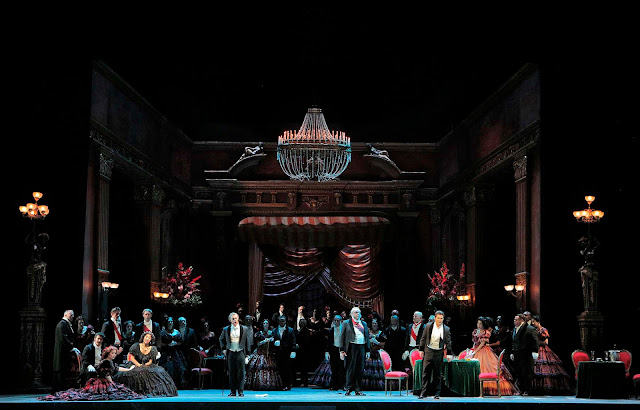

Violetta comes looking for him and finds an invitation from Flora to a party that night. But when the maid, Annina, reveals that Violetta has pawned her jewels to keep the house, Alfredo leaves for the city to settle matters at his own cost. Some months later Alfredo and Violetta are living in a country house near Paris, where he praises their contentment ("De' miei bollenti spiriti"). But she decides she wants freedom ("Sempre libera"), though Alfredo's voice, heard outside, argues in favor of romance. After the guests have gone, Violetta wonders if Alfredo could actually be the man she could love ("Ah, fors'è lui"). Something about the young man's sincerity touches her, however, and she promises to meet him the next day. At first Violetta protests that love means nothing to her.

Alfredo comes in, and since they are alone, confesses his love ("Un dì felice"). An orchestra is heard in the next room, but as guests move there to dance, Violetta suffers a fainting spell, sends the guests on ahead, and goes to her parlor to recover. This young man, having adored Violetta from afar, joins her in a drinking song (Brindisi: "Libiamo").

In her Paris salon, the courtesan Violetta Valéry greets party guests, including Flora Bervoix, the Marquis d'Obigny, Baron Douphol, and Gastone, who introduces a new admirer, Alfredo Germont. Violetta Valéry may be the most heart-wrenching character in all of opera: a high-spirited but deceptively delicate woman who unexpectedly finds, and then selflessly gives up, the love of her all-too-short life in Giuseppe Verdi's LA TRAVIATA.


 0 kommentar(er)
0 kommentar(er)
